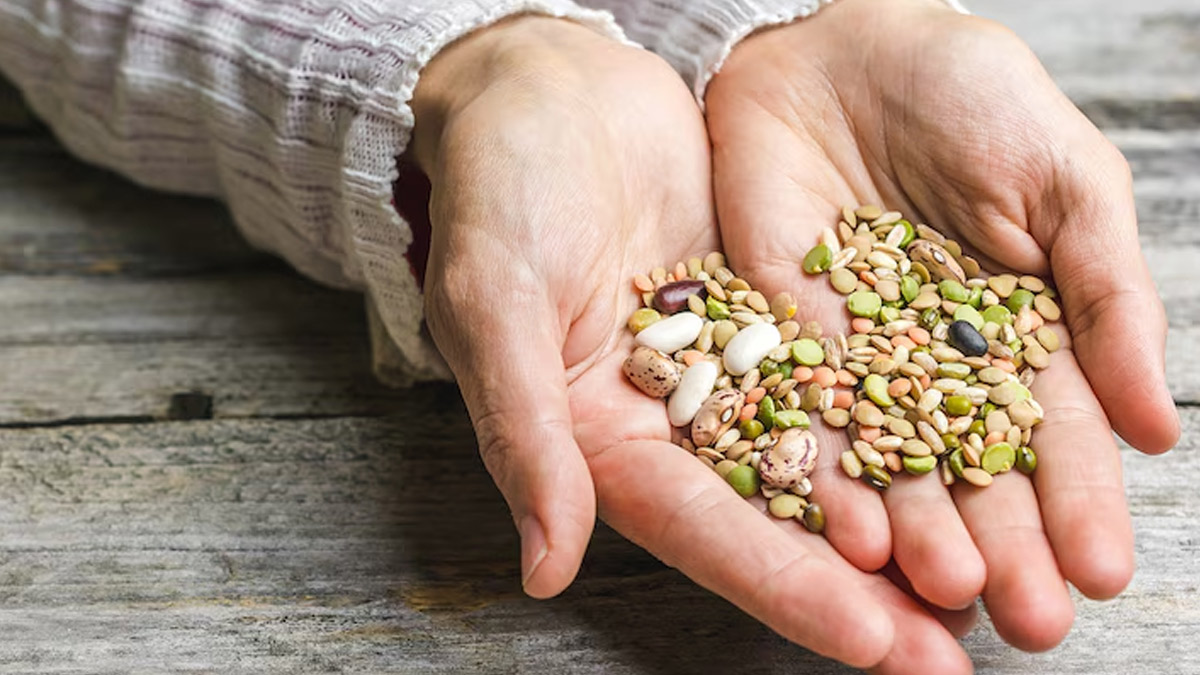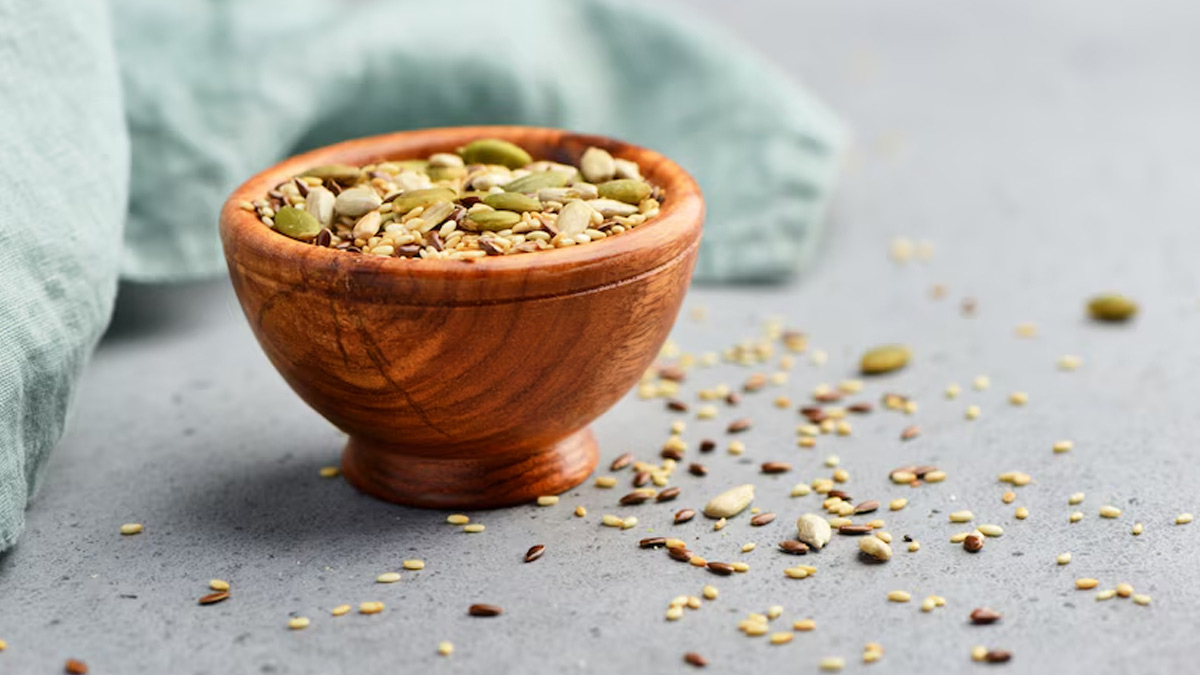
Maintaining healthy blood sugar levels is crucial for your overall well-being, especially for people with diabetes or those who are at the risk of developing it. Type 2 diabetes is prevalent across India and is one of the leading causes of heart related diseases. While individuals with diabetes are prescribed medication to balance the deranged sugar levels in the blood, it is essential to maintain a healthy diet, practise regular exercise and follow other lifestyle changes for balancing your blood sugar levels.
Table of Content:-
According to a study, more than 77 million individuals are diabetic in India and the number is expected to rise over 134 million by 2045. Nearly 57% of these individuals remain undiagnosed of it. The World Health Organization states that the estimated 77 million people suffering from type 2 diabetes are 18 years and above. It also states that 25 million people are in the prediabetic stage.
Certain foods like seeds have been gaining attention for their potential benefits. Seeds are not only flavorful additions to meals but also packed with nutrients that can help regulate blood sugar levels. Let’s explore how seeds can be a valuable addition to a diabetes-friendly diet.

How Do Seeds Help In Lowering Blood Sugar Levels
Seeds are well known for maintaining great health right from maintaining weight to boosting immunity. Let’s explore how they help in lowering blood sugar levels.
1. Rich in Fiber
Seeds like chia seeds, flax seeds, and pumpkin seeds are wonderful sources of dietary fibre. Studies show that fibre can slow down the absorption of sugar in the bloodstream and helps in preventing sugar spikes after meals. Additionally, fibre promotes satiety, which can help prevent overeating and contribute to weight management, another crucial factor in blood sugar control.
Also read: 6 Seeds You Should Eat Every Day for Better Health And Why
2. Low Glycemic Index
Generally, seeds have low glycemic index (GI) as a result they have minimal effect on blood sugar levels. As per studies, foods with low GI help in stabilising blood glucose concentration. Low GI foods take time to digest leading to a gradual rise in blood sugar rather than a sudden spike. Seeds like flax seeds and sunflower seeds have low GI and can prove beneficial for people who want to manage optimum sugar levels.

3. Healthy Fats
Most seeds are rich in healthy fats, particularly omega-3 fatty acids. Studies have shown that these healthy fats improve insulin sensitivity, allowing cells to better respond to insulin and regulate blood sugar levels more effectively. Omega-3 also contains anti-inflammatory properties which can benefit the overall health of a diabetic individual.
4. Plant-based Protein
Seeds are good sources of plant-based protein which is important for tissue building and repair. A study says that a high protein diet can help in reducing glucose levels in blood and improves overall glucose control. Protein slows down the digestion which can help in stabilising blood sugar levels and prevent sugar spikes.
Also read: Healthy Diet: These 5 Energising Seeds Will Boost Your Workout

5. Packed With Nutrition
Seeds are the powerhouses of nutrition loaded with vitamins, minerals, and antioxidants. These nutrients play significant roles in your body including supporting the immune system, reducing inflammation and promoting heart health. A study published by National Institute of Health states, “Dietary antioxidants that show anti-diabetic effects also improve diabetic status by regulating glucose metabolism, improving insulin secretion and decreasing insulin resistance, improving vascular functions.”
You can incorporate these seeds in your diet by sprinkling them in your salads or smoothies, adding them in your curries, or you can consume them with your oatmeal. Awaken your inner chef and experiment by adding different seeds in various food items and add nutritional value to your meals by managing your blood sugar levels.
Also watch this video
How we keep this article up to date:
We work with experts and keep a close eye on the latest in health and wellness. Whenever there is a new research or helpful information, we update our articles with accurate and useful advice.
Current Version